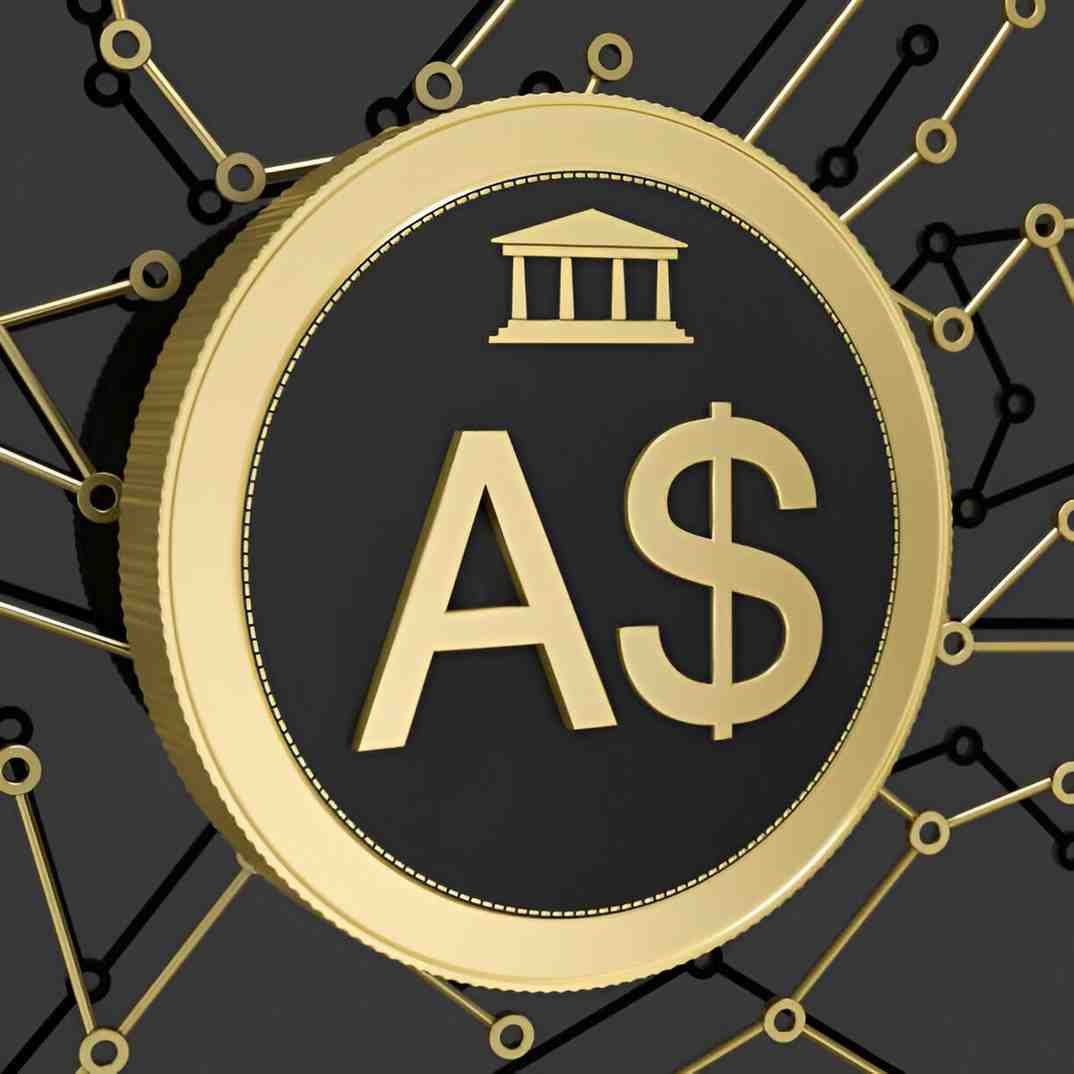Cryptocurrency has become a staple in the modern financial world, and its various forms continue to evolve. One of the lesser-known, yet increasingly significant, players in the cryptocurrency space is ASC (Autonomous System Coin). While ASC may not have the same visibility as Bitcoin or Ethereum, it offers unique benefits and potential for investors who understand its features. In this article, I’ll explore the ins and outs of ASC, its mechanisms, potential benefits, and how it compares to other cryptocurrencies in the market.
Table of Contents
What is ASC Cryptocurrency?
ASC (Autonomous System Coin) is a digital asset designed with a unique blend of technological innovation and decentralization in mind. Unlike some of the more traditional cryptocurrencies, ASC aims to simplify the user experience and provide a more autonomous platform for both investors and developers. The coin is part of an ecosystem built to facilitate peer-to-peer transactions without the need for intermediaries, a core principle of most cryptocurrencies. ASC also operates on a proof-of-stake (PoS) system, which rewards holders for their participation and investments.
One of the most interesting aspects of ASC is its emphasis on smart contract automation and artificial intelligence (AI). The coin was designed to integrate these technologies seamlessly, allowing users to engage in decentralized finance (DeFi) with more advanced tools. The project behind ASC strives to create a scalable, secure, and user-friendly platform, making it an attractive option for both new and seasoned investors.
How Does ASC Cryptocurrency Work?
ASC functions in a decentralized environment, meaning that it doesn’t rely on any central authority to validate transactions or maintain the network. Instead, it uses a distributed ledger system called blockchain, which records transactions across multiple computers. This decentralized structure ensures that the network remains transparent and secure, as no single entity can control or manipulate the data.
The ASC network uses a proof-of-stake (PoS) consensus mechanism, where participants lock up their coins to support the network’s operation. In return, they receive rewards in the form of additional ASC coins. The more coins an individual holds and stakes, the higher their chances of receiving rewards. This method is less energy-intensive compared to proof-of-work (PoW) systems like Bitcoin’s, which require significant computational power.
In addition to PoS, ASC integrates smart contract functionality into its ecosystem. Smart contracts are self-executing contracts with the terms of the agreement written directly into code. They automatically execute actions when predefined conditions are met. This allows for seamless transactions, reducing the need for intermediaries and ensuring trustless interactions.
Benefits of ASC Cryptocurrency
- Decentralization: ASC provides a decentralized network where no central authority controls the currency or transactions. This means it is resistant to censorship and government intervention, which is a key advantage over traditional financial systems.
- Scalability: ASC’s blockchain is designed to scale effectively, meaning that as more users join the network, the system can handle the increased load without sacrificing speed or efficiency. This is important in ensuring the long-term viability of the cryptocurrency.
- Security: Thanks to its blockchain structure and PoS consensus, ASC is highly secure. Transactions are encrypted, and data is stored in a distributed manner, making it difficult for malicious actors to compromise the system.
- Rewarding Stakeholders: PoS allows participants to earn passive income by staking their coins. This reward mechanism encourages long-term holding and contributes to the stability of the network.
- Integration with AI and Smart Contracts: The integration of AI and smart contracts into the ASC ecosystem enhances its functionality, making it a powerful tool for developers and users looking to engage in decentralized finance.
ASC vs Bitcoin and Ethereum: A Comparison
While ASC shares many characteristics with other leading cryptocurrencies like Bitcoin and Ethereum, there are notable differences in terms of their technology and use cases. Below, I’ve created a table to compare ASC with Bitcoin and Ethereum in several key areas.
| Feature | ASC Cryptocurrency | Bitcoin (BTC) | Ethereum (ETH) |
|---|---|---|---|
| Consensus Mechanism | Proof-of-Stake (PoS) | Proof-of-Work (PoW) | Proof-of-Stake (PoS) |
| Blockchain Purpose | Decentralized Finance, AI, Smart Contracts | Peer-to-Peer Payments | Decentralized Applications (DApps) |
| Transaction Speed | Faster due to PoS and scalability design | Slower due to PoW | Moderate, but improving with ETH 2.0 |
| Energy Efficiency | High, as PoS doesn’t require mining | Low, due to energy-intensive mining | High, as PoS has replaced PoW |
| Development Focus | Focus on automation and AI integration | Peer-to-peer digital currency | Smart contracts, DApps, and DeFi |
| Market Capitalization | Smaller, emerging | Largest among all cryptocurrencies | Second-largest after Bitcoin |
| Transaction Fees | Generally lower | Higher due to PoW | Moderate, but fluctuates based on network load |
As you can see from the table, ASC offers some distinct advantages in terms of transaction speed and energy efficiency, particularly when compared to Bitcoin, which relies on the more resource-intensive PoW mechanism. Additionally, ASC’s focus on AI and smart contracts positions it as a forward-thinking cryptocurrency with the potential to drive innovation in the DeFi space.
Potential Use Cases for ASC Cryptocurrency
ASC is designed with several use cases in mind, making it versatile within the broader cryptocurrency ecosystem. Here are some of the primary use cases for ASC:
- Decentralized Finance (DeFi): ASC’s integration with smart contracts makes it an ideal candidate for DeFi applications. Users can participate in lending, borrowing, and trading activities without relying on centralized financial institutions.
- Automated Systems: ASC’s emphasis on AI and automation means that it can be used to create autonomous systems that can operate without human intervention. For example, an AI-powered trading bot could be programmed to use ASC to automatically execute buy and sell orders based on market conditions.
- Cross-Border Payments: ASC’s low transaction fees and fast processing times make it an attractive option for cross-border payments. It allows individuals and businesses to send funds internationally without relying on traditional banks, which can be slow and costly.
- Tokenization of Assets: ASC could be used to tokenize real-world assets, such as real estate, stocks, or even commodities. This would allow for easier transfer of ownership and more efficient trading of these assets on a blockchain.
Calculating Potential Earnings from Staking ASC
If you’re considering staking ASC to earn rewards, it’s important to understand how the rewards are calculated. Let’s walk through an example to get a clearer picture.
Suppose you hold 1,000 ASC coins and decide to stake them for a year. The network offers an annual staking reward of 5%. Here’s how you can calculate your potential earnings:
1,000 ASC * 5% = 50 ASC (annual reward)
So, if you stake 1,000 ASC coins for a year, you would earn 50 ASC coins in rewards, bringing your total holdings to 1,050 ASC coins by the end of the year. The more ASC you stake, the higher your rewards.
The Future of ASC Cryptocurrency
The future of ASC cryptocurrency looks promising, especially as the project continues to develop and integrate more advanced technologies like artificial intelligence and automated systems. As blockchain technology evolves, ASC has the potential to become a key player in the DeFi space, providing a more scalable, secure, and energy-efficient alternative to other cryptocurrencies.
The increasing adoption of PoS systems also signals a shift towards more sustainable and eco-friendly cryptocurrencies, making ASC an attractive option for environmentally conscious investors. Moreover, the growing interest in AI and smart contract automation positions ASC to be at the forefront of a new wave of innovation in the cryptocurrency space.
Conclusion
In conclusion, ASC cryptocurrency offers an intriguing alternative to more established digital currencies like Bitcoin and Ethereum. Its decentralized nature, combined with the use of smart contracts and AI, provides a compelling case for its potential in the evolving cryptocurrency ecosystem. While it may not have the same level of mainstream recognition, its unique features and use cases make it worth considering for those looking to diversify their investment portfolios.
By understanding ASC’s key features, benefits, and potential use cases, you can make a more informed decision about whether it aligns with your investment goals. As always, it’s crucial to conduct thorough research and carefully consider the risks involved in cryptocurrency investing. However, if you’re looking for a cryptocurrency with strong technological underpinnings and promising long-term prospects, ASC may just be worth your attention.





